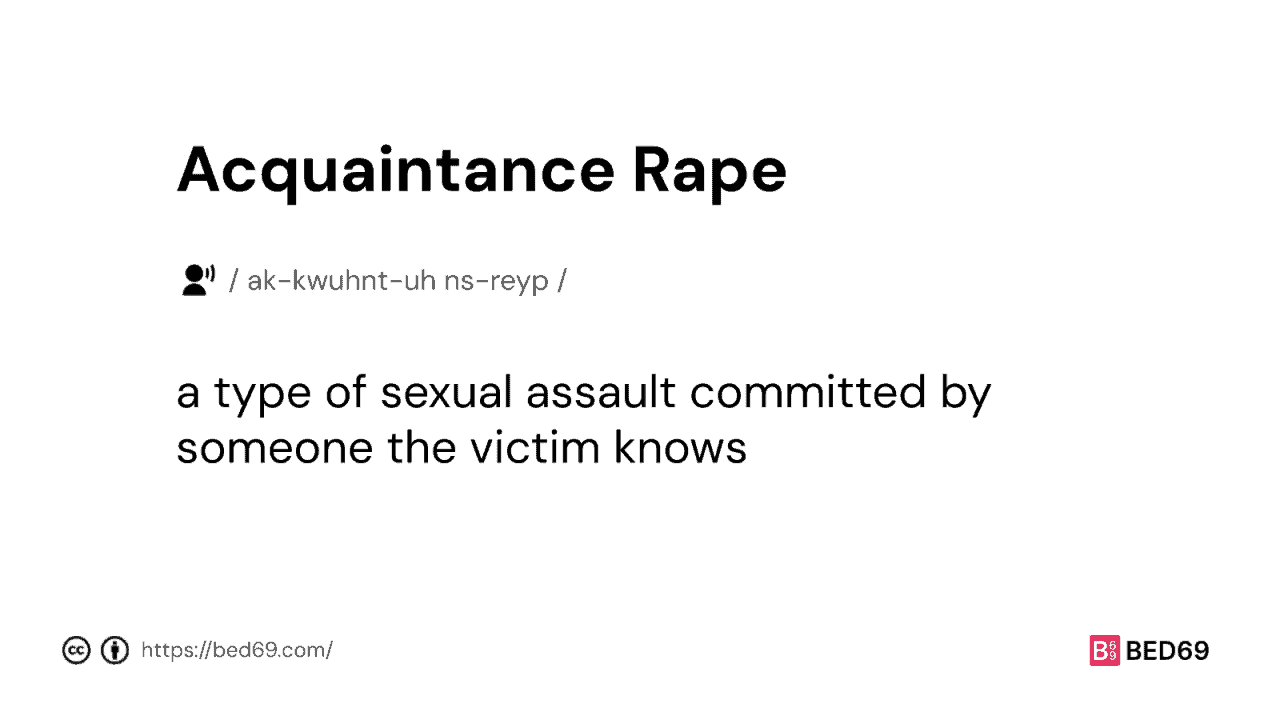What is Acquaintance Rape?
Acquaintance Rape is a form of sexual assault that occurs between individuals who have an existing relationship or know each other. This type of sexual assault is often facilitated by drugs or alcohol, but can also occur without the use of these substances. The victim may have consented to sexual activity at the start of the encounter, but then became uncomfortable or changed their mind and did not have the ability to revoke their consent.
Acquaintance Rape pronunciation: / ak-kwuhnt-uh ns-reyp /

Recognizing red flags
Recognizing red flags in potential acquaintance rape situations is crucial. Watch for signs of someone disregarding your boundaries or pressuring you into sexual activities you’re uncomfortable with. If they try to manipulate you through guilt or intimidation, it’s a warning sign.
Pay attention if they insist on sexual acts despite your clear refusal or if they don’t respect your verbal or non-verbal cues. Trust your instincts and prioritize your safety. Remember, consent is ongoing and can be withdrawn at any time.
Communication is key in any healthy relationship—make sure your boundaries are respected and valued. If you feel unsure or unsafe, seek help and support.
Impact on survivors and support
Survivors of acquaintance rape often face significant emotional, psychological, and physical impacts that can last a lifetime, leading to feelings of shame, guilt, and self-blame. Many survivors struggle with trust issues, intimacy problems, and may experience anxiety, depression, or post-traumatic stress disorder.
It is crucial for survivors to seek support from trusted individuals, counselors, or support groups to navigate the complexities of healing and recovery. Having a safe space to share their experiences and feelings can be instrumental in rebuilding a sense of security and empowerment.
Support for survivors of acquaintance rape can come in various forms, such as therapy, advocacy services, legal assistance, and medical care. Friends and family members can also play a vital role by offering non-judgmental support, validation, and believing the survivor’s account. Education about consent, boundaries, and healthy relationships is essential in preventing and addressing acquaintance rape.
By fostering a culture of respect and understanding, we can create a safer environment for everyone to speak out against sexual violence and provide survivors with the compassion and resources they need to heal and thrive.
Explore other interesting terms:
